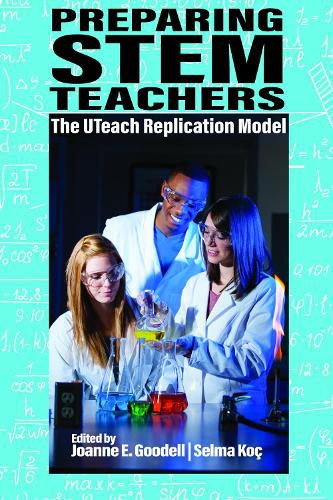Readings Newsletter
Become a Readings Member to make your shopping experience even easier.
Sign in or sign up for free!
You’re not far away from qualifying for FREE standard shipping within Australia
You’ve qualified for FREE standard shipping within Australia
The cart is loading…






This title is printed to order. This book may have been self-published. If so, we cannot guarantee the quality of the content. In the main most books will have gone through the editing process however some may not. We therefore suggest that you be aware of this before ordering this book. If in doubt check either the author or publisher’s details as we are unable to accept any returns unless they are faulty. Please contact us if you have any questions.
STEM project-based instruction is a pedagogical approach that is gaining popularity across the USA. However, there are very few teacher education programs that focus specifically on preparing graduates to teach in project-based environments. This book is focused on the Uteach program, a STEM teacher education model that is being implemented across the USA in 46 universities. Originally focused only on mathematics and science, many UTeach programs are now offering engineering and computer science licensure programs as well. This book provides a forum to disseminate how different institutions have implemented the UTeach model in their local context. Topics discussed will include sustainability features of the model, and how program assessment, innovative instructional programming, classroom research and effectiveness research have contributed to its success. The objectives of the book are:
To help educators gain insight into a teacher education organizational model focused on STEM and how and why it was developed
To present the theoretical underpinnings of a STEM education model, i.e. deep learning, conceptual understanding
To present innovative instructional programming in teacher education, i.e. projectbased instruction, functions and modeling, research methods
To present research and practice in classroom and field implementation and future research recommendations
To disseminate program assessments and improvement efforts
$9.00 standard shipping within Australia
FREE standard shipping within Australia for orders over $100.00
Express & International shipping calculated at checkout
This title is printed to order. This book may have been self-published. If so, we cannot guarantee the quality of the content. In the main most books will have gone through the editing process however some may not. We therefore suggest that you be aware of this before ordering this book. If in doubt check either the author or publisher’s details as we are unable to accept any returns unless they are faulty. Please contact us if you have any questions.
STEM project-based instruction is a pedagogical approach that is gaining popularity across the USA. However, there are very few teacher education programs that focus specifically on preparing graduates to teach in project-based environments. This book is focused on the Uteach program, a STEM teacher education model that is being implemented across the USA in 46 universities. Originally focused only on mathematics and science, many UTeach programs are now offering engineering and computer science licensure programs as well. This book provides a forum to disseminate how different institutions have implemented the UTeach model in their local context. Topics discussed will include sustainability features of the model, and how program assessment, innovative instructional programming, classroom research and effectiveness research have contributed to its success. The objectives of the book are:
To help educators gain insight into a teacher education organizational model focused on STEM and how and why it was developed
To present the theoretical underpinnings of a STEM education model, i.e. deep learning, conceptual understanding
To present innovative instructional programming in teacher education, i.e. projectbased instruction, functions and modeling, research methods
To present research and practice in classroom and field implementation and future research recommendations
To disseminate program assessments and improvement efforts